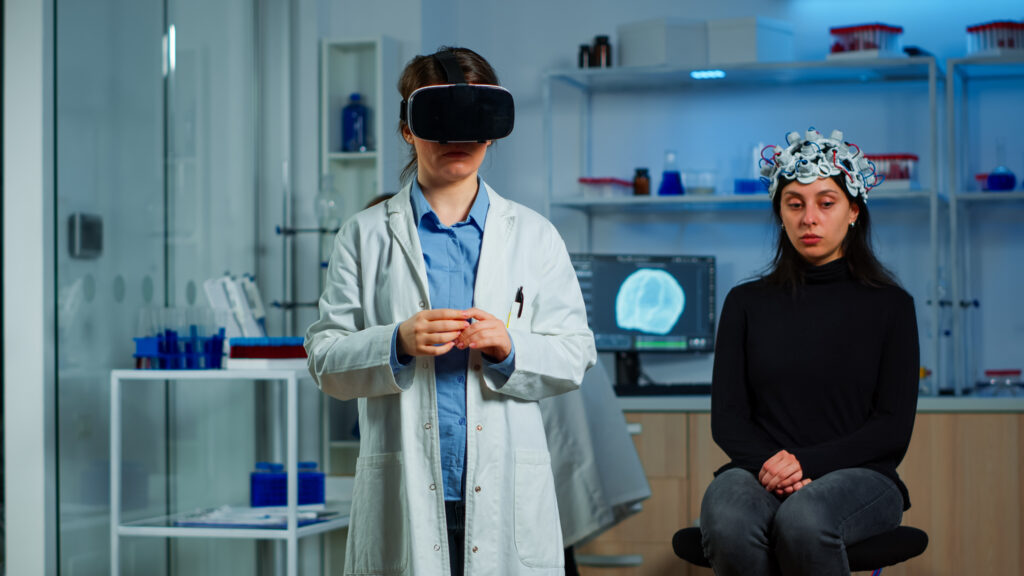Introduction
The evolving the future of behavioral health care is about to undergo a revolution. We are living in a fascinating time of development, marked by advancements in technology, fresh approaches to mental well-being, and a changing perception of mental health services.This blog post will talk about these changes and how they affect people who work in mental health, care for people with mental illness, and fight for mental health.

Evolving the future of behavioral health
Telehealth and Digital Therapies
The use of telehealth has grown dramatically, particularly after the COVID-19 pandemic. Thanks to websites like BetterHelp and Talkspace, people may now get mental health treatment from the comfort of their own homes.Beyond video consultations, digital therapies offer round-the-clock support through chatbots driven by artificial intelligence (AI) and apps for cognitive-behavioural therapy.
Table of Contents

Personalized Treatment Plans
The days of one-size-fits-all mental health care are long gone. Thanks to advancements in machine learning and data analytics, healthcare practitioners may now create personalized treatment plans.Today, genetic testing can provide information about which drugs are most likely to work for a given patient, reducing the amount of time spent trying different ones.
Wearable Devices
Not only are fitness enthusiasts the target market for wearable gadgets such as the Fitbit and Apple Watch, but the usage of these devices to track mental health is growing. They monitor physiological indicators, including variability in heart rate and sleep patterns, providing helpful information for diagnosing and treating mental health disorders.

New Mental Wellness Strategies
Mindfulness and Meditation
Meditation and mindfulness practices have become more popular. Scientific research supports their efficacy in lowering stress and enhancing mental health. The general public can now more easily access these practices through apps like Calm and Headspace.
Community Support Networks
It is impossible to overstate the importance of community support. People can share their stories and support one another via social media platforms, local support networks, and online forums. It is essential for mental health to have this sense of community.
Holistic Approaches
Holistic methods that take the mind-body link into account are becoming more popular. Integrative therapies, which combine conventional and alternative treatments, and nutritional psychiatry, which investigates the influence of nutrition on mental health, are gaining popularity.

Evolving Mental Health Care
Stigma Reduction
Stigma has been one of the biggest obstacles to mental health care. Nonetheless, public awareness initiatives and celebrity support are aiding in the shift in popular opinion. Employers and schools are increasingly implementing mental health initiatives to help people seek help without fear of rejection.
Policy Changes
Organizations and governments are implementing policies supporting mental health as they realize its importance. These policy reforms are essential to advancing mental health care because they will fund research and increase access to care.
Training and Education
Healthcare practitioners must engage in continuous education and training to stay current with the latest innovations. Workshops, online courses, and cutting-edge therapies and technology certifications are helping professionals become more adept at providing care.

FAQs
What is behavioral health?
Behavioural health is the relationship between actions and physical, mental, and spiritual well-being. It includes drug abuse, mental health issues, and other actions that have an impact on an individual’s overall well-being.
How does telehealth improve access to mental health care?
Through telehealth, people can access mental health doctors at a distance, eliminating geographical constraints. This is especially helpful for people who live in remote or underdeveloped locations and might find it difficult to receive conventional in-person services.
Are wearable devices reliable for monitoring mental health?
Although they are not diagnostic instruments, wearables like the Fitbit and Apple Watch offer helpful information on physiological variables like heart rate and sleep habits. Healthcare professionals may find this information useful in tracking and treating mental health issues.
What makes personalized treatment plans effective?
Genetic testing and data analytics are used in personalized treatment regimens to customize care for each patient. This method lessens the trial-and-error phase typically connected with mental health therapy by helping discover the most effective drugs and medicines.
Can mindfulness and meditation really improve mental well-being?
Indeed, a great deal of research has demonstrated how mindfulness and meditation can significantly lower stress, anxiety, and depressive symptoms. These techniques are now more widely available, and apps like Headspace and Calm assist users in incorporating them into their regular routines.
How do community support networks contribute to mental wellness?
Community support networks provide a platform for individuals to share their stories and offer assistance to one another. This sense of belonging can lessen feelings of loneliness and create the supportive atmosphere essential for mental health.
Why is reducing stigma important in mental health care?
Reducing stigma allows more people to ask for assistance without worrying about being judged, which promotes earlier intervention and better results. Changes in views and the promotion of candid conversations about mental health are mainly attributed to public awareness campaigns and mental health initiatives in colleges and workplaces.
What role do policy changes play in the evolution of mental health care?
Policy changes can significantly impact mental health treatment by increasing service accessibility, providing funds for research, and implementing supportive initiatives. Making these adjustments is essential to building a robust mental health care system that can adapt to new developments.
How can healthcare professionals stay updated with the latest advancements in mental health care?
Healthcare workers must receive ongoing education and training via workshops, online courses, and certificates. Thanks to these possibilities, they may stay up to date on the newest treatments, technological innovations, and industry best practices in mental health care.
Conclusion
The mental health field has a bright future because of advancements, fresh approaches, and changing care paradigms. Mental health advocates, caregivers, and medical professionals must stay current on these developments.
Are you prepared to join this fascinating evolution? Please join our network of mental health professionals and advocates today to keep up with the most recent developments in behavioural health. [Discover More About Innovations in Behavioral Health] Concentrating on these developments and implementing these tactics can help us build a more helpful, efficient, and inclusive mental health care system for everyone.

Pingback: Inositol and Weight Loss in Home Health -